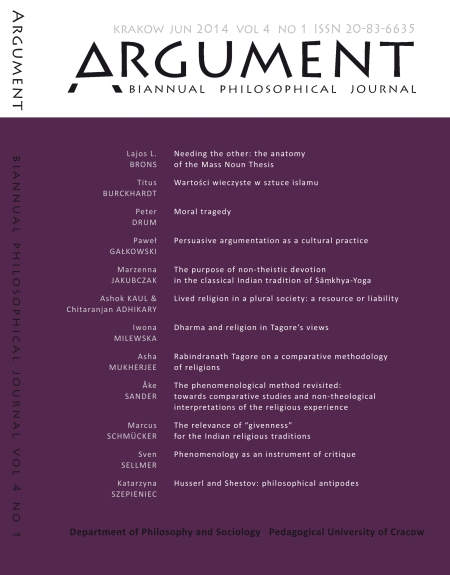The purpose of non-theistic devotion in the classical Indian tradition of Sāṃkhya – Yoga
Słowa kluczowe:
Indian philosophy, non-theism, atheism, religious practice, meditation, īśvara, svābhāvika, Sāṃkhya, Yoga, God in YogaAbstrakt
The paper starts with some textual distinctions concerning the concept of God in the metaphysical framework of two classical schools of Hindu philosophy, Sāṃkhya and Yoga. Then the author focuses on the functional and pedagogical aspects of prayer as well as practical justification of “religious meditation” in both philosophical schools. A special attention is put on the practice called īśvarapraṇidhāna, recommended in Yoga school, which is interpreted by the author as a form of non-theistic devotion. The meaning of the central object of this concentration, that is puruṣa-viśeṣa, is reconsidered in detail. The subject matter is discussed in the wider context of yogic self-discipline that enables a practitioner to overcome ignorance ( avidyā) and the narrowness of egotic perspective ( asmitā), recognized in the Hindu darśanas as the root-cause of all suffering or never-fulfilled-satisfaction ( duḥkha). The non-the¬istic devotion and spiritual pragmatism assumed by the adherents of Sāṃkhya-Yoga redefines the concept of “God” ( īśvara) as primarily an object of meditative practice and a special tool convenient for spiritual pedagogy.


